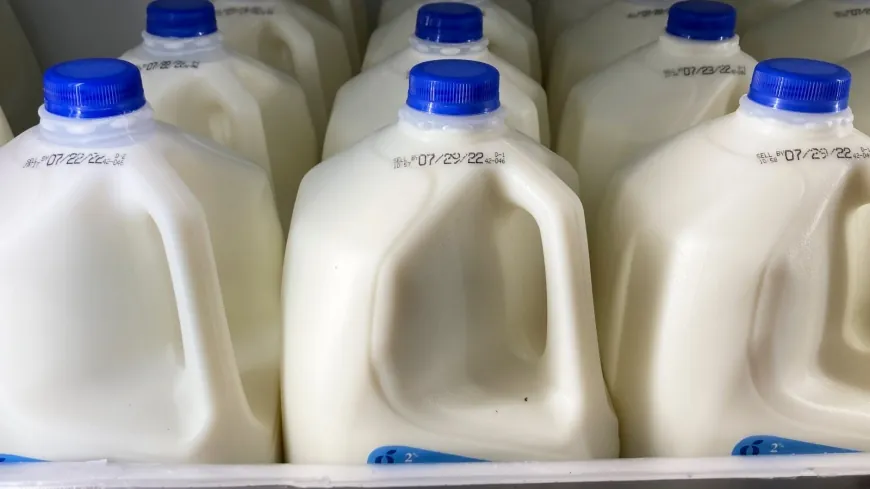Is selling raw milk legal in Virginia?

CHESTERFIELD COUNTY, Va. (WRIC) -- As the online discussion about raw milk products has grown, many may wonder about the health impacts and legality of selling raw milk in Virginia. Here's what you need to know.
According to the U.S. Food and Drug Administration, raw milk is milk from cows, sheep or goats that has not been pasteurized.
Milk can be contaminated in several ways, including feces coming into contact with the milk, infection of the cow's udder, bacteria that live on cows, the environment on a farm and more. Pasteurization is used to reduce the risk of contaminants.
Pasteurization is a process involving heating liquids at high temperatures that was developed in 1864 by Louis Pasteur, according to the Virginia Department of Health. It kills dangerous bacteria, including E. coli, listeria and Salmonella, which cause many foodborne illnesses.
According to the Centers for Disease Control and Prevention (CDC), from 1998 through 2018, there were 202 outbreaks connected to drinking raw milk, causing 2,645 illnesses and 228 hospitalizations.
According to Virginia law, milk bought and sold for human consumption must be pasteurized. In addition, state law holds that only those with a permit can import Grade A raw milk into Virginia.
5 of RFK Jr.’s most controversial views
The Virginia Department of Health has debunked the following claims, among others, that have surfaced in regard to both pasteurized and raw milk:
- Myth: "Pasteurization kills all of the nutrients and enzymes present in raw milk."
- Explanation: According to the department, many studies have shown that pasteurizing milk doesn't significantly change its nutritional value. Those who drink pasteurized milk still get the same health benefits of raw milk but without the risk of disease.
- Myth: "Raw milk cures diseases like asthma, cancer, heart disease and allergies."
- Explanation: The department said there is no scientific evidence to support these claims.
- Myth: "It is safe for me and my family to consume raw milk."
- Explanation: According to the department, the risk of drinking raw milk far outweighs a possible benefit from consuming it.

 VENN
VENN 





